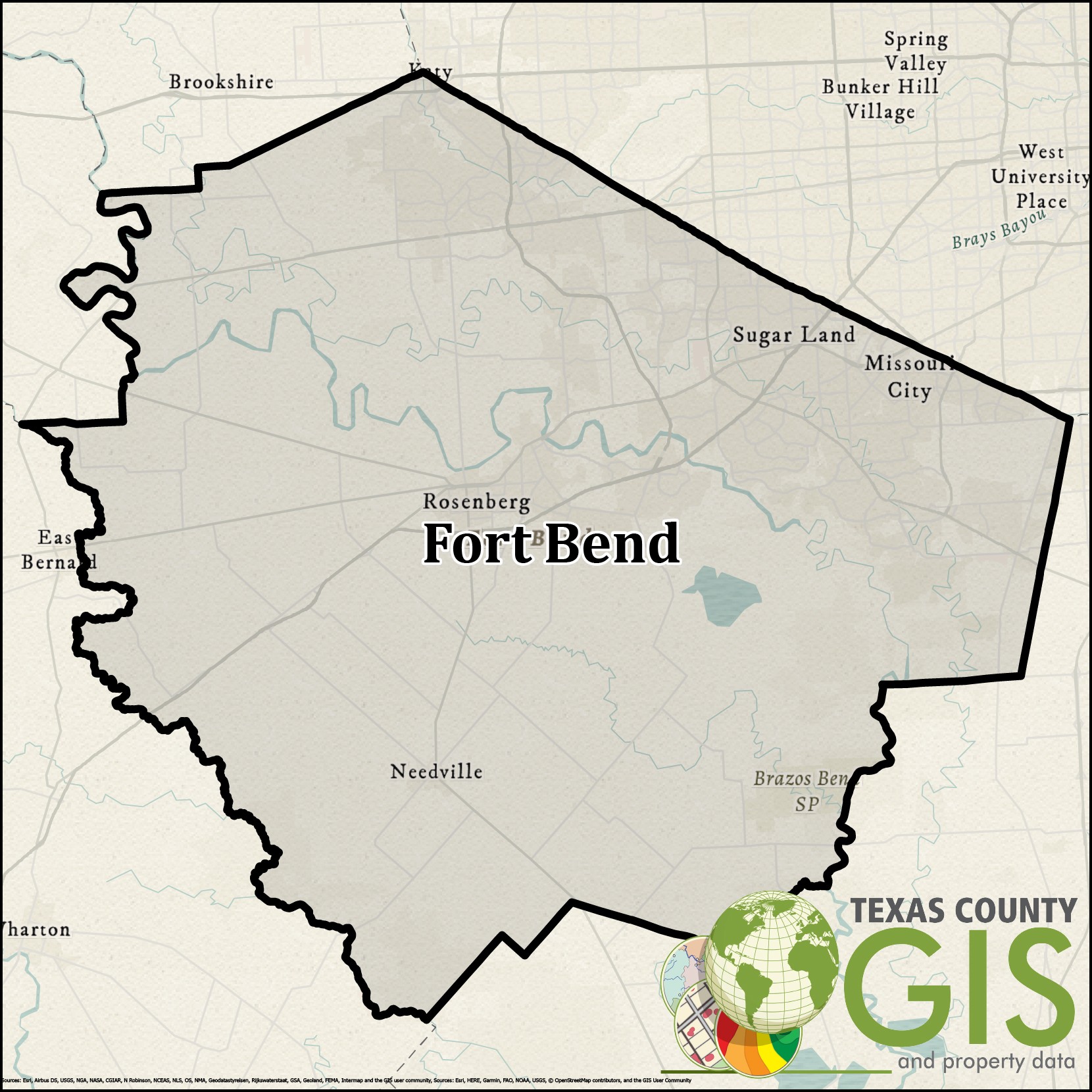Fort Bend County Court Records: Unlocking The Secrets Of Legal Documentation
Ever wondered what's hidden within Fort Bend County court records? These documents hold a treasure trove of information that can impact your life, whether you're a legal eagle, a curious citizen, or someone seeking clarity on legal matters. Fort Bend County court records are more than just files; they're a reflection of the legal system in action. Let's dive into the nitty-gritty of what these records entail and why they matter.
Now, imagine this—you're trying to dig up some info about a property deal, a family matter, or even a legal dispute. Where do you start? Fort Bend County court records are your go-to source. They're like the ultimate guide to understanding the legal landscape of the county. But hey, it's not just about finding stuff; it's about knowing how to navigate these records without getting lost in legal jargon.
So, why are we talking about this? Because understanding Fort Bend County court records can empower you. Whether you're a lawyer, a journalist, or just someone looking for answers, these records hold the key to transparency and accountability. Let's break it down and make sense of it all, shall we?
Read also:Unveiling The Realities Of Police Activity In Burbank Your Ultimate Guide
What Are Fort Bend County Court Records Anyway?
Alright, let's get into the basics. Fort Bend County court records are official documents that chronicle legal proceedings, decisions, and actions within the county. Think of them as the diary of the court system, documenting everything from minor infractions to major trials. These records include everything from criminal cases to civil disputes, family law matters, and even probate cases.
But here's the kicker—they're not just for lawyers. Anyone can access these records, and they're a vital resource for anyone looking to understand the legal history of an individual, a business, or even a piece of property. So, if you're thinking about buying a house or checking someone's background, these records could be your best friend.
Types of Records You'll Find
Now, let's talk about the different types of records you might stumble upon. Here's a quick rundown:
- Criminal Records: These include arrests, charges, and convictions. If you're curious about someone's legal past, this is where you'll find the dirt—or the exoneration.
- Civil Records: Think lawsuits, contracts, and disputes between individuals or businesses. If there's a legal tussle over money or property, it'll be documented here.
- Family Law Records: Divorces, child custody battles, and adoptions—all the juicy stuff happens here. These records are usually sealed, but they're still part of the court's archives.
- Probate Records: Wills, estates, and inheritance matters. If someone's left behind a legacy, these records will tell you all about it.
See? It's like a legal treasure hunt, and every record tells a story.
How to Access Fort Bend County Court Records
Accessing these records isn't as daunting as it sounds. In fact, with a little know-how, you can navigate them like a pro. First things first, you can visit the Fort Bend County Courthouse in person. It's located at 1001 Jackson St, Richmond, TX 77469. But hey, who has time for that? Nowadays, most records are available online, and you can access them from the comfort of your couch.
Online Access Made Easy
The Fort Bend County Clerk's website is your gateway to digital records. You can search for cases by name, case number, or even date. It's super user-friendly, and you don't need a law degree to figure it out. Just type in your search criteria, and voila! You're on your way to uncovering the info you need.
Read also:Castlewood Obituaries A Journey Through Time And Legacy
But remember, not everything is online. Some older records might still be in physical files, so if you're chasing down something from the '90s or earlier, you might need to make that trip to the courthouse.
Why Are These Records Important?
Fort Bend County court records play a crucial role in maintaining transparency and accountability in the legal system. They ensure that everyone, from the average Joe to the bigwig CEO, is held accountable for their actions. Whether it's a criminal trial or a civil dispute, these records provide a clear paper trail of what happened and why.
Plus, they're a goldmine for journalists, researchers, and anyone interested in the legal process. They offer insights into how the justice system works and can help identify trends or patterns in legal cases. In short, they're a vital piece of the puzzle when it comes to understanding the law.
Legal Transparency in Action
Transparency is key in any democracy, and court records are a big part of that. They allow citizens to see how justice is served and ensure that no one is above the law. Whether you're checking on a public official or just curious about a case, these records give you the power to know.
Common Misconceptions About Court Records
There are a few myths floating around about court records, and it's time to set the record straight. One common misconception is that all records are public. While many are, some, like family law cases, are sealed to protect the privacy of those involved. Another myth is that you need a lawyer to access these records. Nope! Anyone can do it, as long as you know where to look.
Sealed vs. Public Records
Not all records are created equal. Some are open to the public, while others are sealed for privacy reasons. For example, adoption records are usually sealed to protect the identities of those involved. On the flip side, criminal records are generally public, unless there's a compelling reason to keep them private.
How to Use Court Records Effectively
Knowing how to use court records effectively can save you time and headaches. First, define your purpose. Are you looking for a specific case, or are you doing a general search? Once you know what you're after, use the online search tools to narrow down your results. And don't forget to double-check your info—typos happen, and you don't want to end up with the wrong record.
Tips for Efficient Searching
- Start with specific details like names or case numbers.
- Use filters to refine your search results.
- Double-check your info to avoid mistakes.
By following these tips, you'll be able to find what you're looking for in no time.
Challenges in Accessing Court Records
While accessing court records is easier than ever, there are still some challenges. For one, older records might not be digitized, which means you'll have to visit the courthouse in person. Additionally, some records are sealed, so you won't be able to access them without a court order. And let's not forget the occasional technical glitch—technology isn't perfect, after all.
Overcoming Barriers
So, how do you overcome these challenges? If you need a sealed record, you might need to file a motion with the court. For older records, a trip to the courthouse might be unavoidable. And if you're dealing with tech issues, patience and persistence are key. Sometimes, it just takes a little extra effort to get what you need.
Legal Implications of Court Records
Court records have far-reaching implications, both legally and socially. They can impact everything from employment opportunities to personal relationships. For example, a criminal record can make it harder to get a job, while a civil judgment might affect your credit score. Knowing what's in your record—and how it can impact you—is crucial.
Protecting Your Legal Rights
Understanding your rights when it comes to court records is essential. If you believe a record is inaccurate or should be sealed, you have the right to challenge it. This might involve filing a motion or seeking legal advice, but it's worth it to ensure your rights are protected.
Future of Court Records in Fort Bend County
As technology advances, the way we access court records is changing. More and more records are being digitized, making them easier to find and use. This trend is likely to continue, with improvements in search functionality and increased accessibility. The future of court records in Fort Bend County looks bright, with more transparency and efficiency on the horizon.
Innovations in Record-Keeping
From digital archives to AI-driven search tools, the future of court records is all about innovation. These advancements will make it easier for everyone to access and understand legal documentation. So, whether you're a lawyer, a journalist, or just a curious citizen, the future of court records is looking pretty exciting.
Conclusion
Fort Bend County court records are more than just files—they're a vital part of the legal system. They offer transparency, accountability, and a wealth of information for anyone who needs it. Whether you're checking someone's background, researching a case, or just curious about the legal process, these records are your key to understanding the law.
So, what are you waiting for? Dive into the world of Fort Bend County court records and discover the stories they hold. And don't forget to share your findings with us in the comments below. Who knows? You might just uncover something fascinating!
Now go forth and uncover the mysteries of Fort Bend County court records. The truth is out there, and it's waiting for you to find it!
Table of Contents
- What Are Fort Bend County Court Records Anyway?
- Types of Records You'll Find
- How to Access Fort Bend County Court Records
- Online Access Made Easy
- Why Are These Records Important?
- Legal Transparency in Action
- Common Misconceptions About Court Records
- Sealed vs. Public Records
- How to Use Court Records Effectively
- Tips for Efficient Searching
- Challenges in Accessing Court Records
- Overcoming Barriers
- Legal Implications of Court Records
- Protecting Your Legal Rights
- Future of Court Records in Fort Bend County
- Innovations in Record-Keeping
- Conclusion


